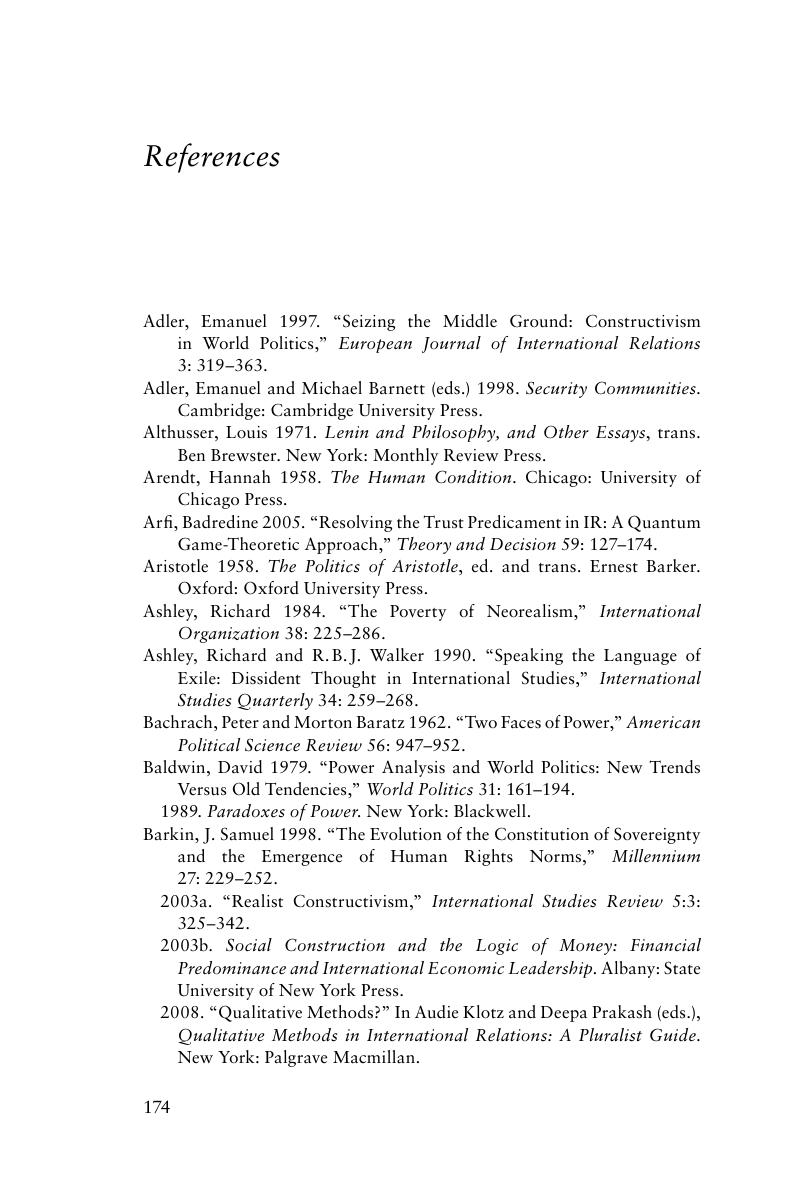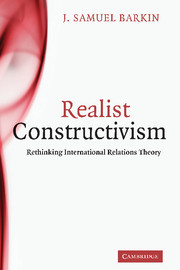References
Published online by Cambridge University Press: 05 June 2012
Summary

- Type
- Chapter
- Information
- Realist ConstructivismRethinking International Relations Theory, pp. 174 - 189Publisher: Cambridge University PressPrint publication year: 2010

